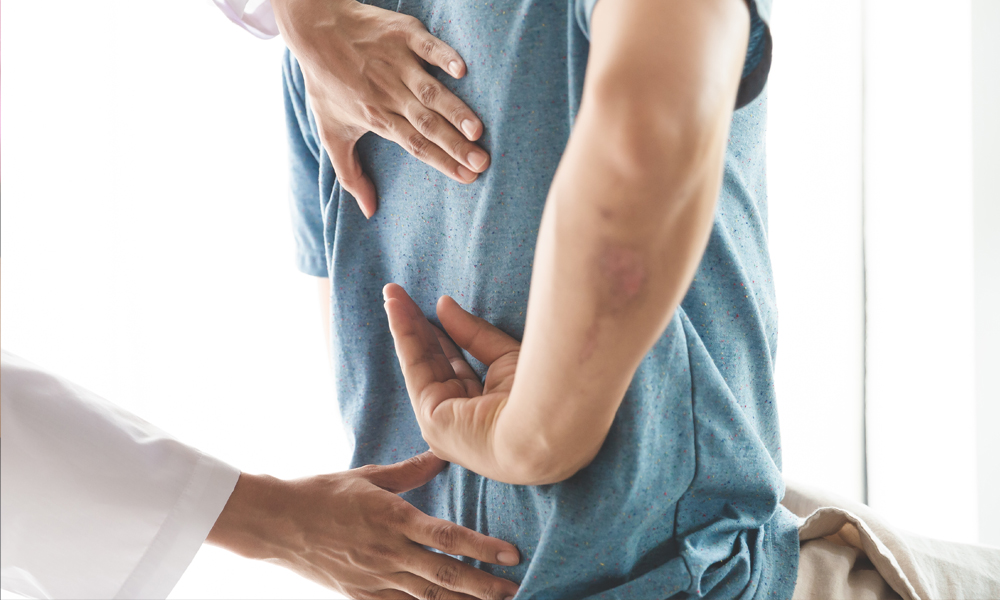
Diagnosis
Your health care provider will generally conduct a thorough physical examination, including checking your height. You may be asked to bend forward from the waist while the provider views your spine from the side. You may also undergo a neurological exam to check your reflexes and muscle strength.
Tests that may be ordered include:
- X-rays or CT scans. X-rays can determine the degree of curvature and detect deformities of the vertebrae. A CT scan might be recommended if your doctor wants more-detailed images.
- MRI. Using radio waves and a strong magnetic field, MRIs can detect infection or a tumor in your spine.
- Nerve tests. If you are experiencing numbness or muscle weakness, you may need tests to determine how well nerve impulses are traveling between your spinal cord and your extremities.
- Bone density tests. Low-density bone can worsen kyphosis and often can be improved with medications.

